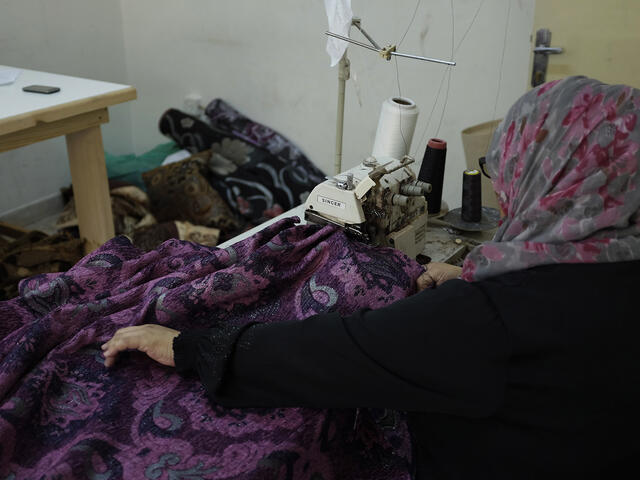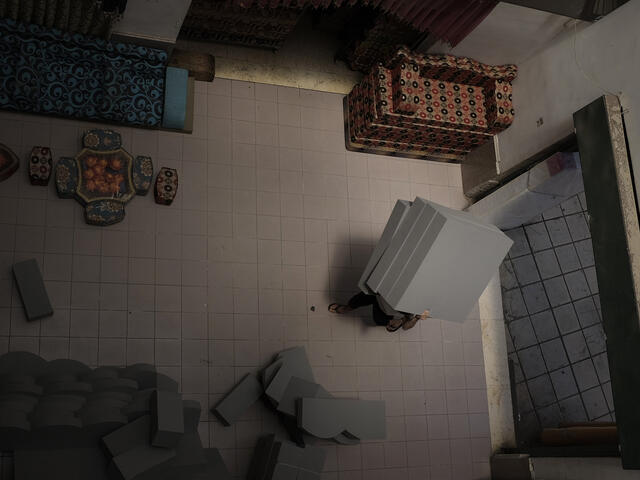Forced by war to abandon their businesses and former lives, Syrian women are creating new opportunities for themselves and their families in the countries where they’ve found refuge. Meet five resilient and ambitious entrepreneurs in Jordan in our new multimedia series, Starting up again: Syrian entrepreneurs in exile.
Name: Manal*
Age: 48
From: Damascus, Syria
Living in: Irbid, Jordan
Startup: Upholstery business
Goal: Create her own line of bespoke upholstery in Ibrid. Originally from Jordan, Manal also wants her husband and children to receive Jordanian citizenship so they together can build a new life on a sturdy and sure foundation.
Manal shares her story:
I am originally from Jordan. My husband, a Syrian, used to sew bridal dresses in Jordan. When I saw him for the first time, it was fate. We moved to Damascus because he had a house there. Our six children were born there.
Before we were married, I would watch my neighbor, who worked in upholstery. I would pay close attention to how he would prepare the materials, cut and assemble. In Damascus, I convinced my husband that upholstery was more profitable and we should work together. He found it difficult at first, but we turned our basement into a workshop and created upholstery for many pieces of furniture.

When we fled Syria back to Jordan, we arrived without any possessions. I was too proud to ask for any help. Since I am Jordanian, I tried to be understanding and adapt to our situation.
But God opened the door for me. I was walking one day when I found 500 Saudi Riyal—about $133—on the street. I exchanged the money and bought a sewing machine. That machine is very special to me. I think of it as a gift that fell from the skies.
We tried to restart our business. We would go to retailers and ask if they could use our services.
I found help at the IRC center in Irbid where I had started to take counseling sessions [to help cope with the stress of a refugee life]. We received cash assistance of $169 per month for six months. We used that money to build up the business.
We were also informed about the [IRC’s] small-business training program, where I really strengthened my skills. The most important thing we learned was about legal permits and proper documentation. I also learned how to choose the right location for my business, who to deal with, what to focus on, and how to grow the business.
Then we received a start-up grant from the IRC for $986 to buy more machines and materials. We cut, sew and send the final product back to [the retailers]. We make around $14 for a day’s work.

Our workshop is on the third floor and there is one small elevator in the building, but we’re not allowed to use it to move materials or furniture. We have to carry everything up and down the stairs, which is draining. It’s a big burden and we don’t charge for this. I would like to move my workshop closer to the street and be able to buy my own raw materials, and be able to sell fabric and sew for individual customers, not just retailers.
But our psychological state has improved a lot, knowing that we’re not working for other people, but working for ourselves. Also, I know that my hard work will pay off, that I will benefit directly from it.
I want to say thank you so much to the IRC. They stood with us. They helped us financially. It changed our lives.
*Names changed for privacy reasons.
This program is funded by the U.S. Department of State - Bureau of Population, Refugees and Migration (PRM).